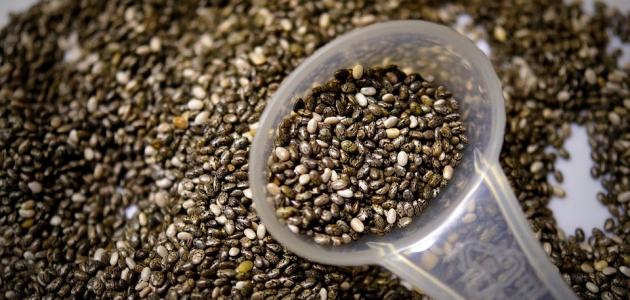coconut milk
Coconut milk is a white, milky substance that is extracted by grating the white pulp of a ripe coconut, placing it in a cotton cloth, then squeezing and squeezing it. The milky liquid resulting from this stage is of high density and high fat content, then the manufacturers mix the grated pulp again. With warm water, and squeeze again so that this liquid is less dense and fat content, and it should be noted that the transparent liquid found in the coconut fruit is known as coconut water.
The process of manufacturing coconut milk is very similar to the process of manufacturing coconut cream, but the difference between them is in the amount of coconut used in manufacturing between the two producers. Where the cream contains a high amount of coconut, and a small amount of water, which makes it have a denser and more viscous texture than coconut milk, and is similar to the texture of soy cream, oat cream, or cream from other animal sources, as coconut milk is available in texture The same liquid as any other milk, such as: soy milk or almond milk.
Coconut milk for weight loss
Although there are no studies showing the direct relationship between the consumption of coconut milk and weight loss and there is still a need for more information about that, it does contain some nutrients that may contribute to this. Including medium chain fatty acids, such as: capric acid and caprylic acid, which are found in a small amount in milk, and may be beneficial for metabolism and weight loss, as it is characterized by a low possibility of being stored as fat in the body; They pass from the digestive system directly to the liver to be used for energy production, and may contribute to reducing appetite and calories consumed during the day compared to other types of fatty acids, according to what was mentioned by several studies, including a study conducted by Columbia University in 2014 on men suffering from obesity. Overweight and between the ages of 19 to 50 years consumed this type of fatty acid for breakfast.
Read also:How can I lose weight in a week?In addition, a preliminary study from the Malaysian University of Sciences in 2011 found that eating virgin coconut oil for a period of 4 weeks by 20 obese people may help reduce their waist circumference, but it did not appear to have an effect on the level of body fat, as well. This result was also observed when consumed by those suffering from heart diseases, according to a study from the University of Rio de Janeiro in 2015, but it did not have a noticeable effect besides weight loss. A review from the University of Quebec in 2016 stated that consuming medium-chain fatty acids alone or with other nutritional supplements, such as: probiotics, prebiotics, and organic acids, contributes to weight loss and calorie burning, in addition to reducing fat storage by improving fat metabolism and restoring stability and balance to the flora. Intestinal bacteria (in English: Gut microbiota), as it was found that the loss of this balance may be associated with the risk of obesity,
Other types of milk useful for slimming
Some types of milk that are considered low in calories can contribute to weight loss, and these types also differ in their content of protein, carbohydrates and other nutrients compared to cow’s milk, and therefore it is worth noting the need to consult a nutritionist to choose the appropriate milk that provides the body with nutrients What is needed, and commensurate with the quantities recommended to be eaten daily, and does not conflict at the same time with the desired texture and taste, and the following points explain some of these types:
Read also:Benefits of clove oil for slimming- Almond milk: (in English: Almond Milk) It is characterized by its light texture, its flavor close to hazelnut, and its low content of carbohydrates and calories, as one cup of it, which is 250 milliliters, contains less than a quarter of the calories found in cow’s milk, and less than half the amount of fat available in it. And it is considered free of saturated fats, and therefore it is a good choice for those who want to reduce their consumption of calories, and it is a source of unsaturated fats that are considered healthy fats and may contribute to weight reduction, and it is also free of lactose sugar, which makes it a good choice also for those who suffer from It is lactose intolerant, but it should be noted that almond milk is low in protein content, so it is not suitable for children, and it contains phytic acid, which interferes with the absorption of some nutrients, such as: zinc, iron, and calcium.
- Soy milk: (in English: Soy Milk); This milk is made from soybeans or soy protein, and it usually has a high-density texture, and contains vegetable oils to improve its taste and texture, and it contains nearly half the calories, fats, and carbohydrates compared to cow's milk, and it was shown according to a small study from Northern Illinois University in 2007 that the consumption of soy milk by overweight women for a period of 8 weeks reduced their weight, fat percentage, and abdominal circumference, with the same amount of fat-free milk consumption, and at the same time the protein content of soy milk is similar to the amount found in cow's milk, and it contains all the acids Essential amino acids that are not produced by the body (in English: Essential amino acids) and it is one of the highest rich plant sources, thus providing the body with high-quality protein or what is called complete protein, but at a lower rate than that available in cow's milk, and soy milk is also free of cholesterol And a little bit of saturated fat, but it should be noted that it may cause allergies in some people, and its consumption in large quantities may be associated with gland diseases. goiter.
- Pea milk: (in English: Pea Milk) where this milk is made from yellow pea grains, and it is characterized by its high density and creamy texture, and it contains protein in an amount close to that found in cow’s milk, and it is also low in calories compared to cow’s milk, and it is free of carbohydrates and sugar, and it has Regular consumption of it contributes to weight loss, appetite control, and a feeling of satiety between meals. Pea milk is rich in branched-chain amino acids, which may promote muscle growth, in addition to controlling blood sugar levels, which is good for those with Suffering from diabetes or those who follow a low-carbohydrate diet, pea milk is also a source of many nutrients, such as: potassium, iron, calcium, and others.
- Hemp milk: (in English: Hemp Milk) where this milk is made from the seeds of the hemp plant (in English: Cannabis sativa), and it has a sweet taste close to hazelnuts, and as for its texture, it is similar to water, and it can be consumed as a substitute for fat-free milk, and despite the fact that hemp milk contains It contains an amount of fat similar to that available in cow's milk, except that the calories and protein in it constitute half the amount in cow's milk, and hemp milk is also low in carbohydrates, and it is a source of omega-3 and omega-6 fatty acids, which are essential amino acids that cannot The body manufactures it, and therefore it needs to be consumed through nutritional foods, in addition to being a source of vitamin E, vitamin A, potassium, and calcium. Hemp milk is available in several flavors, such as: chocolate, vanilla, and coconut.
- Macadamia milk: (in English: Macadamia Milk) It is made from water and macadamia nuts, and it has a creamy taste, and it is a rich source of the healthy type of fat, which is monounsaturated, whose consumption in larger quantities as a substitute for saturated fats may contribute to lowering cholesterol, and it is low in its carbohydrate content, Which makes it a good choice for diabetics who avoid consuming milk. It also contains a third of the calories provided by cow's milk and half the amount of fat. It is a good source of minerals, such as: calcium, iron, magnesium, manganese, and zinc. As for the types of fortified macadamia milk, they contain 10 % of the recommended amounts of vitamin A, 50% of the recommended amounts of vitamin B12, 25% of the recommended amount of vitamin D.
- cashew milk: (in English: Cashew Milk), which is made from cashew nuts or butter with water, and it has a creamy texture and is rich in vitamins, minerals, healthy fats, and other phytochemicals, and its calories are less than a third of the calories found in cow’s milk, so it is a good choice For those who want to reduce their consumption of these calories, and their content of carbohydrates and sugars also decreases, which is a good option for controlling the level of sugar in diabetics, and it is free of lactose sugar, and therefore it is good for those who suffer from digestive disorders, and the fat in it constitutes half of the fat available in cow’s milk However, it should be noted that cashew milk is not a good choice for those whose protein needs are high, because it is a low source of protein.
- Quinoa milk: (in English: Quinoa Milk) It consists of water and quinoa seeds, which ranges from 5% to 10%, and it is low in calories by less than half the calories found in cow's milk, and it is low in fat, and contains a moderate amount of complete protein. Its carbohydrate content is equivalent to that found in cow's milk, and quinoa milk is a good choice for those who follow a vegetarian diet.
Coconut milk nutritional value
Here is the nutritional value of 100 milliliters of coconut milk:
Read also:Losing weight without dieting| food item | Quantity |
|---|---|
| Calories | 197 calories |
| water | 72.88 milliliters |
| Protein | 2.02 grams |
| Carbohydrates | 2.81 grams |
| Fats | 21.33 grams |
| cholesterol | 0 milligrams |
| magnesium | 46 milligrams |
| potassium | 220 milligrams |
| vitamin C | 1 milligrams |
| folate | 14 milligrams |
| Iron | 3.3 milligrams |
| Calcium | 18 milligrams |
| manganese | 0.768 milligrams |
General benefits of coconut milk
- Source of antioxidants: Such as: phenols that contribute to the fight against free radicals, and it is believed that they may reduce oxidative stress and the risk of diseases associated with these radicals, such as: dementia and Alzheimer’s disease, as well as delaying the aging process.
- A source of heart-healthy fats: Although coconut milk is high in saturated fats and calories, it contains medium-chain fatty acids such as lauric acid, at a rate of 50% of the total fatty acids in milk. Which contributes to improving levels of cholesterol and triglycerides, and it is believed that the fats available in coconut milk are less at risk of clogging the arteries, and coconut milk is also cholesterol-free, which is good for heart health, and can reduce the risk of heart disease and stroke.
- A source of beneficial fats for the immune system: As the medium-chain fatty acids available in coconut milk can contribute to improving the health of the immune system, including the following:
- Laurel acid: It is believed to possess anti-inflammatory, bacterial, and infection properties, and inhibits the growth of Staphylococcus aureus, Streptococcus pneumoniae, and Mycobacterium tuberculosis. It turns in the body into what is called a monolaurin compound (in English: Monolaurin); It is a compound with antiviral properties, bacteria, and other germs.
- Capric acid: It constitutes 6-7% of the total fatty acids in coconut, and it is a medium-chain fatty acid that turns into a useful compound called Monocaprin that has antiviral and antibacterial properties.
- A source of beneficial nutrients for those who suffer from deficiency: (in English: Nutritional deficiencies), where it is believed that coconut milk has a good nutritional value, and it contains some nutrients that are known to be lacking in some people, including; Vitamin C, and high-quality protein that contains essential amino acids.
- An alternative to milk for those who suffer from lactose intolerance: It is a condition associated with the inability to digest this sugar, which leads to the emergence of some symptoms, such as: bloating, gas, cramps, and diarrhea. In this case, it is advised to avoid consuming it, or consuming food alternatives to it. For example, coconut milk can be consumed instead of cow's milk, which contains lactose.









